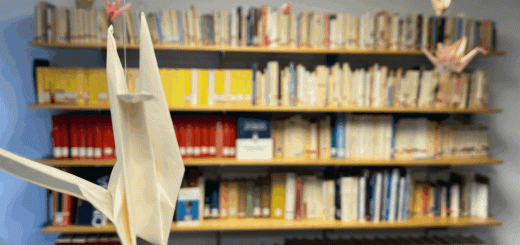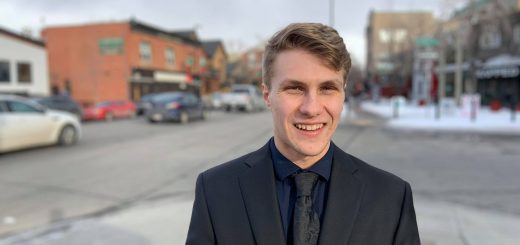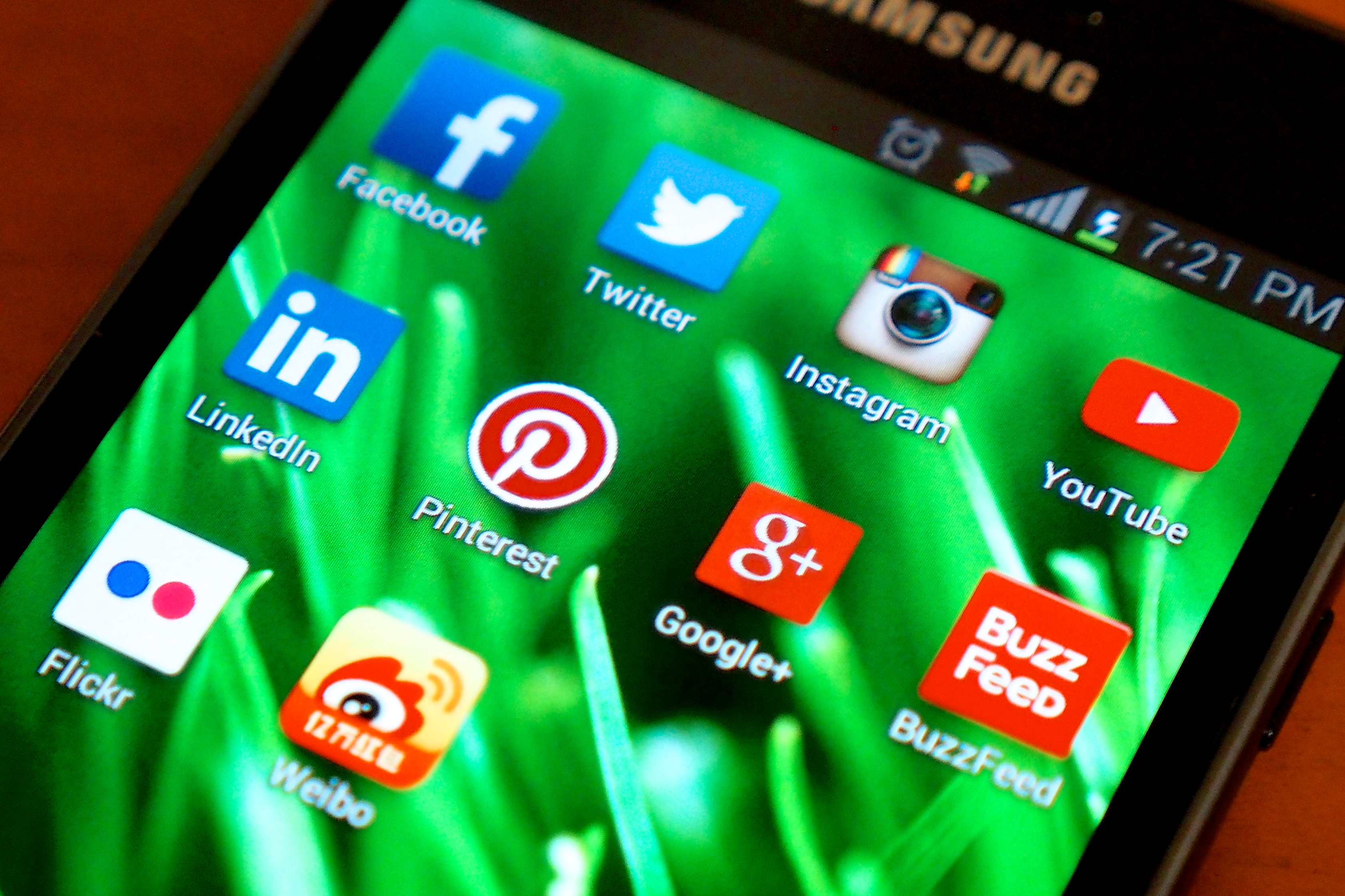A Commentary of Dr. Robin DiAngelo’s, ‘Why it’s So Hard for White People to Talk about Race’
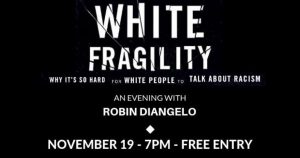 To be honest, when I was first heard about the event, I wasn’t too excited. I didn’t know a lot about Dr. Robin DiAngelo, but to be honest, the idea of someone not of color talking about how why were going to “deconstruct racism, ethnic and cultural identity, and how to help us communicate about the tough topics”… let’s just say I was not all that confident in the impact this event could have.
To be honest, when I was first heard about the event, I wasn’t too excited. I didn’t know a lot about Dr. Robin DiAngelo, but to be honest, the idea of someone not of color talking about how why were going to “deconstruct racism, ethnic and cultural identity, and how to help us communicate about the tough topics”… let’s just say I was not all that confident in the impact this event could have.
Normally this conversation is led by a person of color and that is because we lived it. We’ve experienced racism, sexism, religious prejudice, etc. And we’ve survived it. Of course we would talk about it if we can. But sometimes it’s hard to talk about. Not only because some of these instances can make you really unsettled and afraid to speak out, but also because sometimes we just don’t know how to vocalize these experiences.
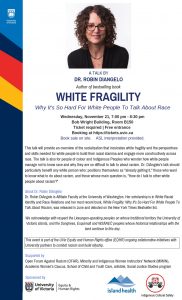 When something that is said or done feels wrong but we cannot explain why, what do we do? How do we explain to you that it is wrong if we cannot rationalize it for ourselves? These instances can be the worst because sometimes you don’t realize how much sometime hurts or affects you until way after the fact. And then you question yourself. Am I over reacting? Should I say something? Is it too late?
When something that is said or done feels wrong but we cannot explain why, what do we do? How do we explain to you that it is wrong if we cannot rationalize it for ourselves? These instances can be the worst because sometimes you don’t realize how much sometime hurts or affects you until way after the fact. And then you question yourself. Am I over reacting? Should I say something? Is it too late?
As a visibly black, Muslim, female, I feel uncomfortable speaking up and talking about the truths of racism and prejudice that surround me. So basically, I was prepared to be unimpressed by this talk.
I was wrong. It was absolutely amazing and I’m still thinking about it weeks later.
The presentation itself was amazing! She’s a obviously a very well spoken person who knows how to captivate the audience. She used humor as a method to break the ice, and I was extremely impressed. Impressed because she was able to make jokes in the moment which in my opinion did not, by any means, belittle the gravity or the importance of what she was saying.
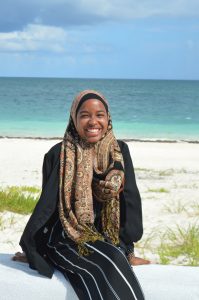
As someone who grew up in a black majority country, but was educated in an international school, I was, and still am, very aware of what it means for me to be black and to be Muslim. As a black woman, I am constantly pushing myself to do my best and then better than my best.
Simply being ‘okay’ truly is not good enough for me, and I grew up in a household where that was fact. I know with every fiber of my being that I have to work to get opportunities and positions that will not be given to me.
That kind of motivation is something that has always been a part of my persona. I am always trying to prove myself. To myself. And to everyone. As one of the only visible Muslims, I constantly had to watch what I said, did, acted. So my identity is definitely something I am aware of, but Dr. DiAngelo asked a question I want everyone reading this to think about:
“What does it mean to be white?
What are some of the ways your race has shaped your life?
Are you aware of your race?”
It honestly baffles me that some people may not be able to answer these questions. And I agree with Dr. DiAngelo when she said it’s a “willful not knowing.” It’s a lack of critical thinking and consideration on how you have been shaped by your race. But what I loved more is when she said, “and if you do not know what it means to be white, you cannot hold an alternative reality. You cannot know what it means not to be white.”
I also truly appreciated how she ended the session. When I go to these kinds of events, I am always looking for a takeaway. And she acknowledged this, but instead of giving ‘step by step “How To End Racism”,’ she ended the session with a question:
“What has allowed you not to know what to do about racism?”

